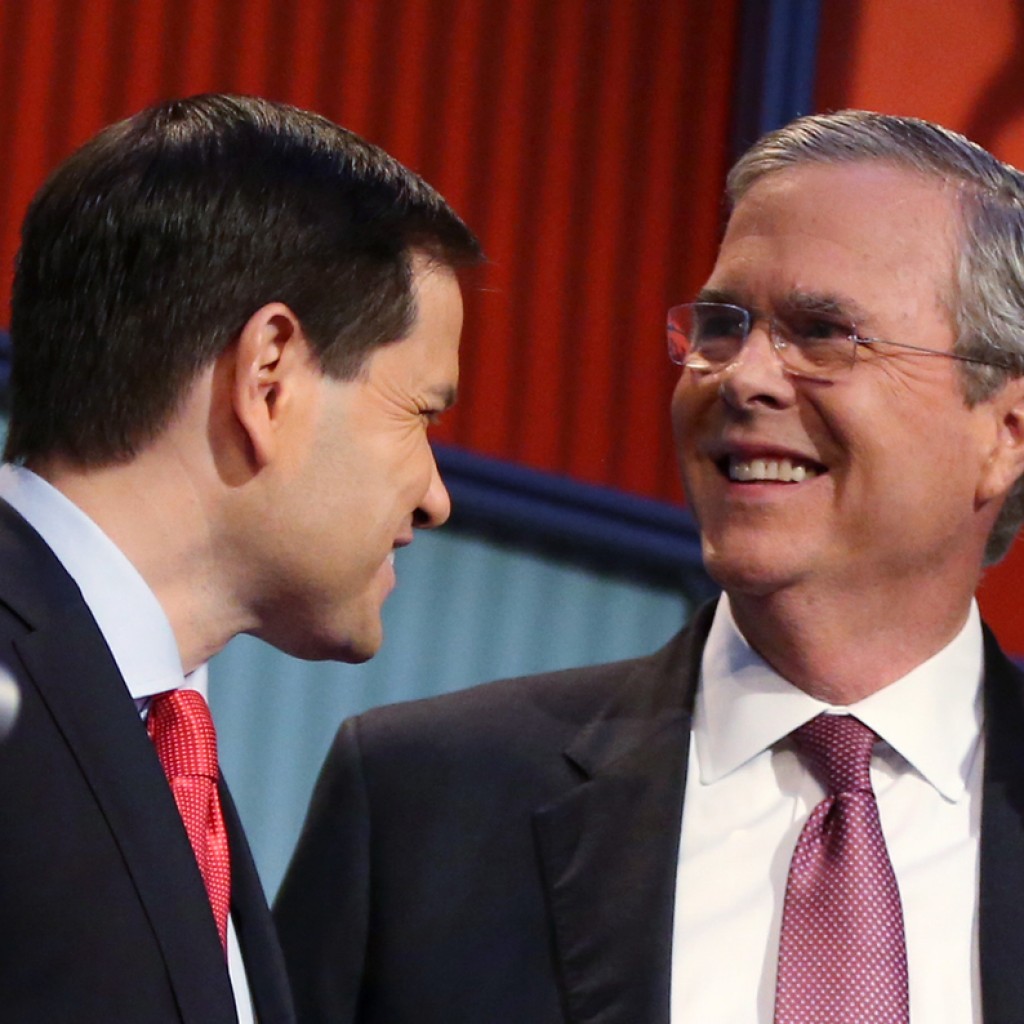
As everybody chasing the White House knows, Florida’s 29 electoral votes may well decide the whole ballgame next November.
But, S.V. Dáte writes in National Journal, the same cannot be said for its 99 Republican primary delegates, where the path to victory will likely go through elsewhere. The high cost of advertising statewide, Florida’s diffuse political geography, and new rules passed by the state GOP may lead candidates to forego campaigning in the state altogether.
Writes Dáte:
…[T]his time around, the Florida party decided to ditch a system that divvied [delegates] up proportionally and instead adopt a winner-take-all model. The decision was made, in part, to make the primary more crucial and win the state a larger share of presidential candidates’ attention.
Instead, it may now be more likely that campaigns will write it off entirely.
“There’s a finite amount of money,” said Priscilla Grannis, the vice chair of the Collier County Republican Party. “It’s a simple matter of mathematics.”
Campaigning statewide in Florida is both unwieldy and expensive. The state stretches 832 miles from Pensacola to Key West and includes 67 counties, making an effective voter-turnout operation a logistical nightmare. The state also has 10 different media markets, meaning that a serious TV ad campaign costs nearly $2 million a week.
…
The winner-take-all rule means that unless a campaign has a reasonable chance of coming in first in the balloting, every dollar and every hour of staff time spent on Florida will likely go to waste.
“The theory with the [state party] was they thought it would draw people here and make people try harder. But maybe it will make people shy away,” said Jonathan Martin, the chairman of Fort Myers’s Lee County Republican Party. “That’s what I would think, and that’s common sense.”
The Republican Party of Florida does have one success to boast about this week, as all 14 remaining GOP presidential candidates are scheduled to appear at their Sunshine Summit in Orlando.
But the attention may be short-lived, writes Dáte, as many observers believe Florida Republicans’ high-stakes primary rules might backfire.
That the candidates are even coming to Florida this week is the result of a different rule adopted by the state party earlier this year: To make the Florida ballot in March, candidates could either pay $25,000, find volunteers to collect at least 125 Republican signatures in each of the state’s 27 congressional districts, or show up at the so-called Sunshine Summit. All 14 of the remaining candidates decided to show up. Seven are scheduled to speak Friday, seven on Saturday.
But as to making a serious financial commitment to winning the Florida primary, only [Jeb] Bush, the former two-term governor, has a significant staff presence in the state, with his national headquarters and a separate field office in Miami plus a state headquarters in Tampa. Celebrity businessman Donald Trump only this month opened a field office in Sarasota. Marco Rubio, the state’s junior senator, has his national headquarters in Washington, D.C., but no campaign offices in Florida.
…
How much this sentiment will ultimately matter, of course, is even less clear. By the time Florida Republicans go to the polls on March 15, four states will have voted in February and nearly a dozen more on March 1. A field that currently includes 14 Republicans will almost have certainly shrunk, as money dries up for all but the best-funded campaigns. Even more important, Florida voters have historically taken their cues from voters in the earlier states.
As Florida statehouse watchers and White House prognosticators alike both know all too well, this is not the first time the state has attempted to shake up the nominating process. The results have been hit-or-miss.
This is the first time in three presidential elections that Florida has not created chaos in the primary calendar by insisting on a January election date. In 2008, then-state House Speaker Marco Rubio and Gov. Charlie Crist argued that Florida’s size and diverse population made it a better microcosm of the country as a whole than Iowa or New Hampshire, and they pushed through a law setting a Jan. 29 primary. The traditional early states then moved their elections ahead to retain their respective positions. The same thing happened in 2012.
The Republican National Committee responded in both years by stripping Florida of half of its delegates. This time around, a new RNC rule would have taken away all of Florida’s delegates if it jumped ahead in the calendar, and the state responded by moving its primary to March 15, the first day that the RNC allows a winner-take-all contest.


